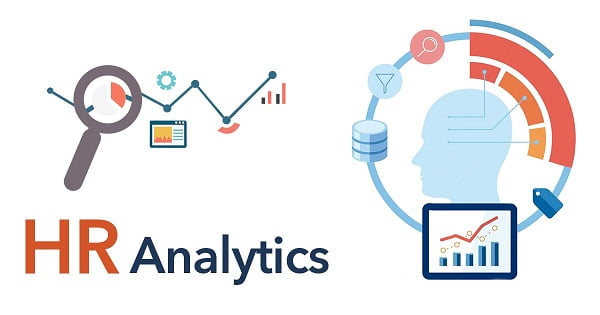Qualifications required to enroll in an HR Analytics Course
HR analytics specialists are essential to helping businesses understand the behavior of their employees, boost productivity, and enhance personnel management tactics.
Individuals are contemplating enrolling in HR analytics courses to gain the requisite skills as the need for experts in HR analytics keeps rising. But before all, knowing the requirements and credentials normally needed to enroll in an HR analytics program is crucial. This article will explore the essential requirements and recommendations for those pursuing an HR analytics course.

Basic Educational Background
A foundational educational background is needed to enroll in an HR analytics course. A bachelor’s degree in a relevant topic, such as human resources, business administration, statistics, mathematics, or a related field, is often required for admission to most institutions that offer certificates in HR analytics.
People from an educational background as such will have a basic grasp of the concepts behind HR analytics, including statistics, data analysis methods, and business principles.
Proficiency in Data Analysis and Statistics
To obtain valuable insights from HR data, HR analytics mainly depends on data analysis and statistical methods. Consequently, it is beneficial to have a firm grasp of statistical ideas and data analysis techniques.
Prospective individuals should be at ease with ideas like regression analysis, hypothesis testing, descriptive statistics, inferential statistics, and data visualization. Being proficient with statistical software programs like SPSS, R, or Python is also helpful.
Familiarity with Human Resources Concepts
Although it is not always required, having a fundamental grasp of human resources theories and procedures is advantageous. Understanding HR procedures, regulations, and duties gives a context for using analytical methods to address HR issues.
People with prior job experience in HR or similar sectors will have an advantage in learning how HR analytics are used in real-world settings. Do you wish to know how? This video will give you the insights:
Strong Analytical and Problem-Solving Skills
Working with huge data sets and tackling delicate workforce-related challenges is what HR analytics involves. It is crucial to think critically, detect trends, and derive insights from data. Furthermore, a logical and systematic approach to issue resolution allows HR analytics specialists to produce successful plans and suggestions based on data-driven facts.
Communication and Presentation Skills
The ability to effectively convey results and insights to stakeholders is an overlooked part of HR analytics. HR analytics specialists must be able to interpret sophisticated data analysis into practical insights that non-technical audiences can understand. Strong written and verbal communication and presentation skills are required to explain the value and consequences of HR analytics to key decision-makers within a business. By 2030, it is anticipated that the global market for HR analytics will be worth US$6.3 billion.
Technical Skills
While not all HR analytics courses need students to have significant technical knowledge, having a basic understanding of computer programming and database administration can be beneficial. Data preparation and analysis need proficiency in Microsoft Excel, SQL, or other data manipulation applications. Knowledge of tools such as Tableau or Power BI is also beneficial in graphically presenting data-driven insights.
Continuous Learning Mindset
The field of HR analytics is dynamic and ever-evolving, driven by advancements in technology and new data sources. It is essential for individuals interested in pursuing HR analytics to have a mindset of continuous learning.
Staying updated with the latest trends, tools, and techniques in HR analytics is crucial for professional growth and relevance in the field. This can be achieved through self-study, attending industry conferences, participating in webinars, or joining professional associations related to HR analytics.
Factors to consider while choosing an HR Analytics Course
- Reputation and Accreditation
Look for the best HR analytics courses from reputed universities, professional associations, or recognized training providers.
- Faculty and Instructors
Assess the qualifications and expertise of the faculty and instructors delivering the course. Look for instructors with practical HR analytics experience and relevant academic credentials. Their expertise will greatly impact the quality of instruction and the depth of knowledge you can gain from the course.
- Practical Application and Hands-on Experience
Check if the course offers opportunities for practical application and hands-on experience. Practical exercises, case studies, and projects enable you to apply the concepts learned and develop valuable skills. Look for courses that provide access to specialized tools and software used in HR analytics to gain practical experience with industry-standard tools.
- Alumni and Industry Connections
Explore the course’s alumni network and industry connections. A strong alumni network can provide valuable mentorship and access to job openings. Industry connections can lead to guest lectures, internships, or potential job placements. Consider courses with a robust alumni network and established ties with HR analytics professionals and organizations.
- Support and Resources
Evaluate the support and resources offered by the online HR analytics course. Look for courses that provide ongoing support through discussion forums, access to instructors or teaching assistants, and additional learning resources. Check if the course offers online libraries, research materials, or access to relevant industry publications.
- Certification and Recognition
Consider whether the course offers certification upon completion. A recognized certification can enhance your credibility and demonstrate your proficiency in HR analytics to potential employers. Research the recognition and reputation of the certification within the industry to ensure its value.
- Cost and Return on Investment (ROI)
Examine the course’s cost in comparison to the value it gives. Consider the institution’s reputation, the teacher’s experience, the program’s breadth, and the prospective job options. Determine the possible return on investment (ROI) regarding new skill acquisition, career progression, and income potential.
In conclusion
Enrolling in an HR analytics course requires a mix of educational background, technological capabilities, analytical ability, and a desire to use data to drive HR decisions. While a bachelor’s degree in a related discipline is normally required, competency in data analysis and statistics and knowledge of HR principles can be beneficial. Individuals can position themselves for success in HR analytics and contribute significantly to firms seeking data-driven insights for their workforce strategy.